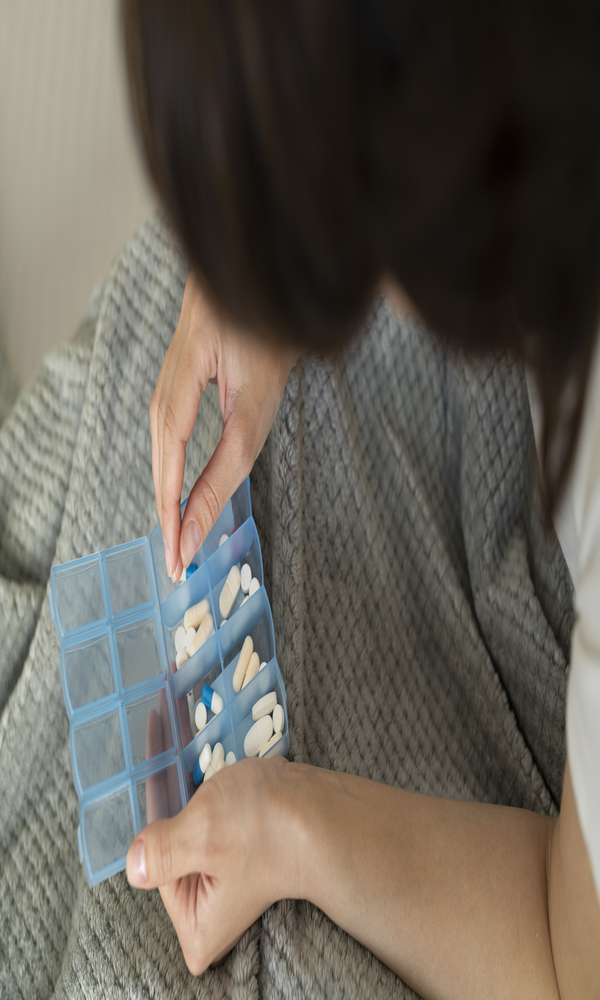Introduction
Proper medicine storage is more than just keeping pills in a cabinet—it’s a crucial step in maintaining medication safety and potency. Whether you're managing chronic conditions or keeping a few over-the-counter remedies on hand, the way you store medicines can affect their effectiveness and your family's safety.
At EzyChemist, your trusted online pharmacy, we’re committed to empowering you with health insights. In this guide, we’ll walk you through the best practices for storing medicines at home to ensure they're safe, effective, and easy to manage.
1. Choose the Right Storage Location
Most people instinctively store their medications in bathroom cabinets. However, the bathroom is typically warm and humid—conditions that can degrade medications over time.
✅ EzyChemist Tip:
Store your medicines in a cool, dry place such as a bedroom drawer or kitchen cabinet away from the stove and sink. Ensure the storage area is free from moisture, heat, and direct sunlight.
2. Keep Medicines in Original Packaging
Original packaging includes vital information such as dosage instructions, expiration dates, and batch numbers.
Why it matters:
- Original blister packs protect tablets from moisture and light.
- Bottle labels offer storage instructions that help retain drug potency.
- Tamper-proof packaging enhances safety.
🛡️ Best Practice: Avoid transferring pills to unlabeled containers or mixing different medicines in one box.
3. Maintain a Consistent Temperature
Medications react to temperature changes. Exposure to heat or cold can make certain drugs ineffective or even harmful.
Tips to follow:
- Store at room temperature (15–25°C) unless otherwise stated.
- Keep away from stoves, windows, radiators, and refrigerators unless refrigeration is instructed.
- Never leave medicines inside vehicles.
4. Keep Medicines Away from Children and Pets
Ingesting adult medications can be extremely dangerous for children and pets.
Safety Recommendations:
- Use child-resistant containers.
- Store medicines on high shelves or locked cabinets.
- Never refer to medicine as "candy" around children.
5. Organize Medicines by Category
Mixing different types of medications in the same space can lead to confusion or misuse.
Smart Storage Suggestions:
- Use separate boxes or labeled bins for prescriptions, OTC drugs, vitamins, and supplements.
- Group by type: pain relief, allergies, digestion, etc.
- Store topical and oral medications separately.
6. Monitor Expiration Dates
Expired medications may lose their effectiveness or become unsafe.
Best Practices:
- Check expiration dates monthly.
- Use a marker to note the opening date on eye drops or creams.
- Discard expired medicines promptly.
7. Dispose of Unused or Expired Medicines Safely
Improper disposal can harm the environment or lead to accidental ingestion.
How to Dispose Properly:
- Use local pharmacy take-back programs.
- Do not flush medications unless the label says so.
- Mix with coffee grounds or kitty litter, seal in a bag, and throw in the trash.
8. Keep Emergency Medications Easily Accessible
Medications like EpiPens or asthma inhalers must be within reach during emergencies.
EzyChemist Pro Tip:
- Store separately in a clearly marked pouch.
- Inform all household members about its location.
- Replace immediately after expiration.
9. Avoid Crushing or Splitting Pills Without Advice
Some medications are designed to release slowly or protect your stomach lining.
Important Reminders:
- Only split if the pill has a score line and your doctor approves.
- Never crush capsules or coated tablets.
- Ask your pharmacist or contact EzyChemist support if in doubt.
10. Use a Medicine Organizer or App
Managing multiple medications? A daily pill box or mobile app can help.
Organizing Tips:
- Use weekly organizers for morning, afternoon, and evening doses.
- Use apps to set reminders and track your intake.
- Keep a printed medicine list for emergencies.
11. Special Storage for Liquid and Topical Medications
Liquids, creams, eye drops, and ear drops often have specific storage needs.
Storage Guidelines:
- Refrigerate only if instructed.
- Use within the time period after opening (usually 30 days).
- Keep lids tightly closed to prevent contamination.
12. Traveling with Medicines
When you're on the go, medication safety is still a priority.
EzyChemist Travel Tips:
- Pack medicines in your carry-on luggage.
- Keep them in their original packaging.
- Carry a prescription note, especially for international trips.
13. Maintain a Medicine Inventory
Knowing what you have prevents double-dosing or hoarding expired products.
Simple Ways to Track:
- Create a spreadsheet or use a mobile app.
- Record purchase and expiry dates.
- Refill prescriptions in a timely manner.
14. When in Doubt, Ask a Pharmacist
Not sure how to store a specific medication?
We’re Here to Help:
- Contact EzyChemist's customer support or your local pharmacist.
- Ask about unusual smells, color changes, or new side effects.
- Never hesitate to double-check instructions.
Conclusion
Proper medicine storage protects your health, your family, and the effectiveness of your medications. By following these expert-backed tips from EzyChemist, you can create a safe and organized medicine cabinet that supports your wellness journey.
Ready to stock up or refill your prescriptions safely and conveniently?
👉 Visit our online store at www.ezychemist.in for quick delivery, expert support, and quality you can trust.
